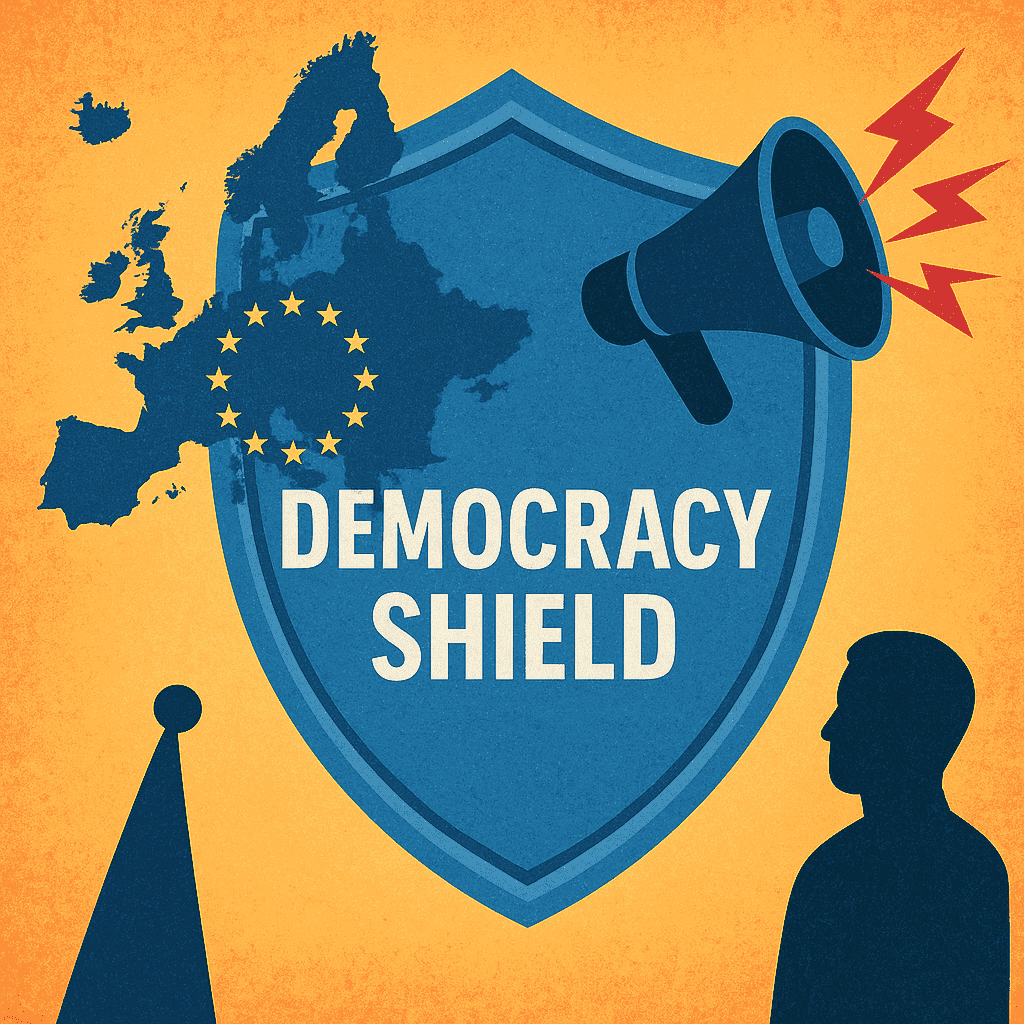European Commission Launches Democracy Shield

The European Commission has unveiled a comprehensive initiative called the Democracy Shield, aimed at strengthening democratic institutions across the European Union and countering rising threats, including disinformation, foreign interference, and technological manipulation. The Democracy Shield forms the central pillar of the Commission’s latest strategy to restore trust in public institutions and protect electoral processes ahead of upcoming political cycles.
According to EU officials, the Democracy Shield focuses on tackling three significant vulnerabilities: the distortion of the information environment, weakening institutional safeguards, and declining civic resilience. The Commission warns that emerging technologies — particularly generative AI — have accelerated the scale and sophistication of disinformation campaigns, which are capable of influencing elections, targeting minority communities, and destabilizing democratic governance.
A core component of the Democracy Shield is the establishment of the European Centre for Democratic Resilience, a new body designed to assist member states in detecting foreign interference, analyzing coordinated manipulation campaigns, and supporting fact-checking organizations. Participation in the centre will be voluntary but open to EU candidates, expanding its reach beyond the 27-nation bloc.
The Democracy Shield also proposes new transparency rules for political advertising, updated guidelines for election monitoring, and enhanced cooperation between national cybersecurity agencies to prevent digital sabotage. However, legal analysts point out that the initiative currently lacks binding enforcement, leaving implementation primarily in the hands of national governments.
Civil society groups argue that the EU must provide dedicated funding to strengthen media literacy, independent journalism, and cross-border investigative platforms. Without this investment, they warn that the Democracy Shield risks becoming more symbolic than structural.
Speculatively, if the Democracy Shield succeeds, it may serve as the blueprint for a broader EU constitutional mechanism aimed at safeguarding democratic institutions, similar to how NATO treats collective defense.
The Commission’s message is clear: Europe’s democratic future depends on unified action — and the Democracy Shield is intended to be the first line of defense.
Also Read: EU Court Upholds Directive on Adequate Minimum Wage


















































